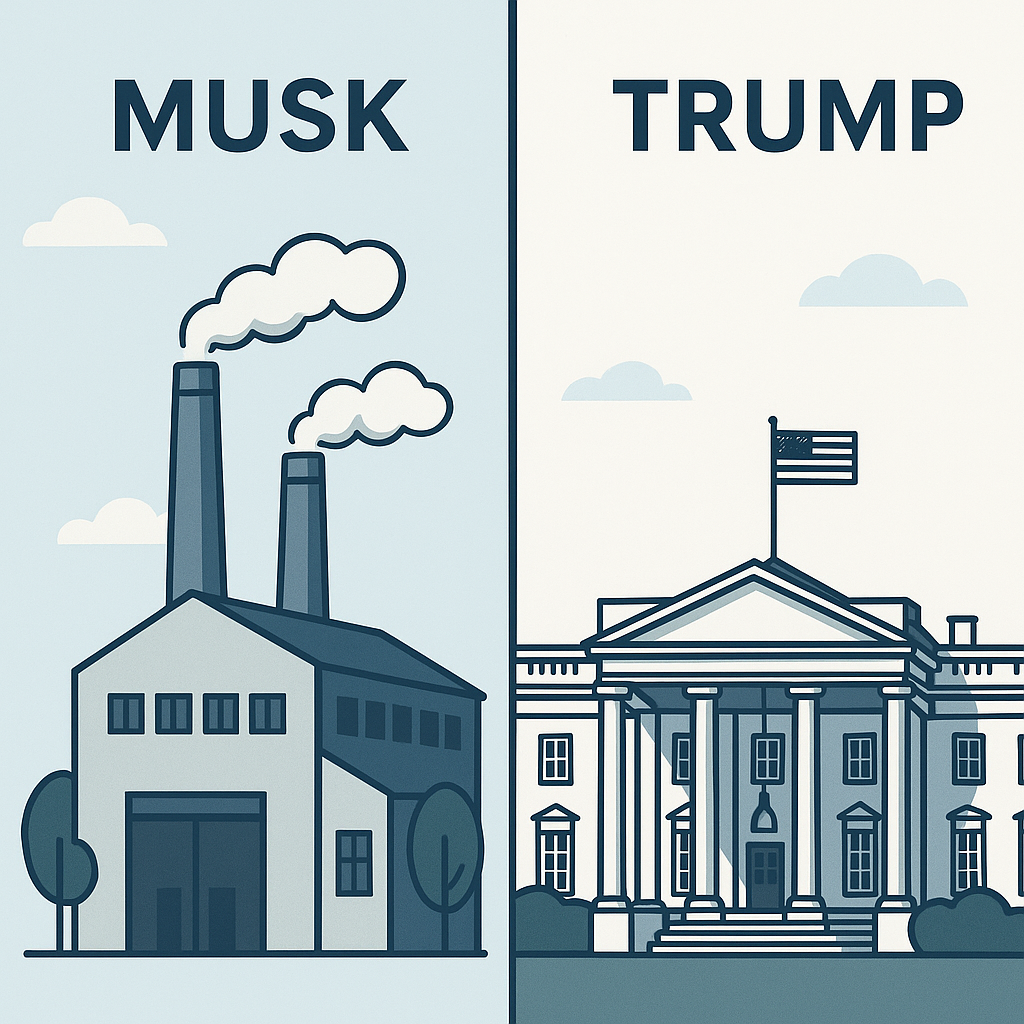After spending hundreds of millions on Trump and the right, Elon Musk signals he's out. What does that mean for GOP fundraising?
What to Know:
- Elon Musk spent over $250 million backing Trump’s 2024 comeback.
- He also funneled $21 million into a failed Wisconsin court race.
- Musk now says, “I think I’ve done enough,” and plans to exit politics.
- His abrupt pullback leaves a funding vacuum for Republicans.
- The GOP may need to rethink its big-donor dependence before midterms.
At a Bloomberg event in Doha, Elon Musk stated that he plans to reduce or end his political spending, following a cycle where he emerged as one of the most significant financial backers in national politics. “I think I’ve done enough,” Musk said during the interview, citing concerns about the impact of his contributions and his level of involvement in U.S. campaigns, according to the Economic Times.
Elon Musk in the Oval Office. Photo Credit: WikiCommons/The White House
According to Politico, Musk directed over $250 million toward efforts supporting Donald Trump’s 2024 presidential campaign and related Republican initiatives. That total also included $21 million spent in an attempt to influence the Wisconsin Supreme Court race, where the conservative candidate lost despite significant external investment.
While Musk did not attribute his decision to any single factor, he alluded to concerns about the efficacy and outcomes of political giving. He noted that the process can become more about personalities than policy and suggested that political donations can only do so much to shape electoral outcomes.
Relationship with Trump and Messaging Dynamics
Musk’s role in conservative political circles intensified during the 2024 cycle, particularly around digital platforms and discourse. His ownership of X (formerly Twitter) positioned him as a vocal critic of the Biden administration’s approach to regulation, especially around electric vehicles, censorship concerns, and artificial intelligence.
President Trump frequently mentioned Musk on Truth Social, often framing him as a leading entrepreneur aligned with conservative values. According to The Independent, Trump’s Truth Social posts referenced Musk multiple times, portraying him as a business-minded supporter of American industry.
However, Musk did not campaign publicly with Trump and generally avoided direct political appearances. His comments at the Bloomberg forum reflect a degree of distance from the political establishment, including uncertainty about the direction of future leadership selections.
When asked about Trump’s potential cabinet picks, Musk remarked, “There are some people I definitely wouldn’t recommend,” but declined to elaborate on specific individuals.
A Public Breakup with Private Costs
Though Musk avoided naming names, the timing of his remarks sparked speculation—especially after a series of now-deleted posts hinted at a rift between him and Trump. Their once-symbiotic relationship, built on mutual amplification and shared enemies, has cooled visibly. Some insiders have likened it to a "political divorce," with Musk quietly pulling back his endorsement energy just as Trump gears up for another cycle of dominance.
For the GOP, the implications are stark. Losing Musk’s money is one thing; losing his tech megaphone and veneer of Silicon Valley legitimacy is another. If the split holds, it could weaken the party’s fundraising muscle and digital reach ahead of the 2026 midterms—especially among independents who once saw Musk as a signal of pragmatism over partisanship.
Implications for Republican Strategy
The announcement of Musk’s political exit comes at a time when Republicans are preparing for a new fundraising landscape ahead of the 2026 midterms. His financial support played a major role in 2024’s digital advertising campaigns, data infrastructure, and outside legal efforts. Analysts say his departure could present a challenge for GOP operatives who have become accustomed to substantial megadonor support.
While party officials have not publicly commented on Musk’s remarks, strategists told Politico that his contributions had become increasingly essential to competitive operations, especially in swing states and court-related battles.
The failed judicial race in Wisconsin is also cited as a potential turning point. Despite Musk’s backing, the conservative candidate lost by a significant margin. Observers noted that while outside spending remains influential; it does not always translate into voter turnout or favorable margins.
Musk himself acknowledged that high-dollar spending doesn’t always yield proportional results, saying, “You can’t buy outcomes, only amplify messages.”
Context and Next Steps
Musk’s pivot away from campaign finance may reflect broader donor fatigue or recalibration across political networks. Other prominent contributors have also expressed concerns about post-election strategy, candidate messaging, and the role of social media in shaping political discourse.
His move could open up space for other donors or organizations to assert influence within the Republican ecosystem. However, it also begs the question of whether a new strategy is required, one that prioritizes coalition building, voter outreach, and ground game over individual donors.
Musk did not rule out all future involvement. He emphasized that his main focus going forward would be on his companies, particularly in AI, transportation, and energy. “There are a lot of problems to solve that don’t require politics,” he said.
Wrap Up
Elon Musk’s decision to withdraw from political spending follows an election cycle where his more than $250 million in contributions made him one of the GOP’s most influential backers. His announcement signals more than just donor fatigue—it challenges a Republican infrastructure that has come to rely heavily on a handful of high-net-worth individuals to drive campaign momentum, fund legal efforts, and amplify messaging.
As Musk refocuses on his business ventures, Republican strategists will need to adjust to a more decentralized funding environment, one that may require rebuilding small-donor networks, rethinking digital strategy, and reducing overdependence on high-profile figures. Whether the GOP can meet that moment may shape the outcome of the next midterms.





.png)